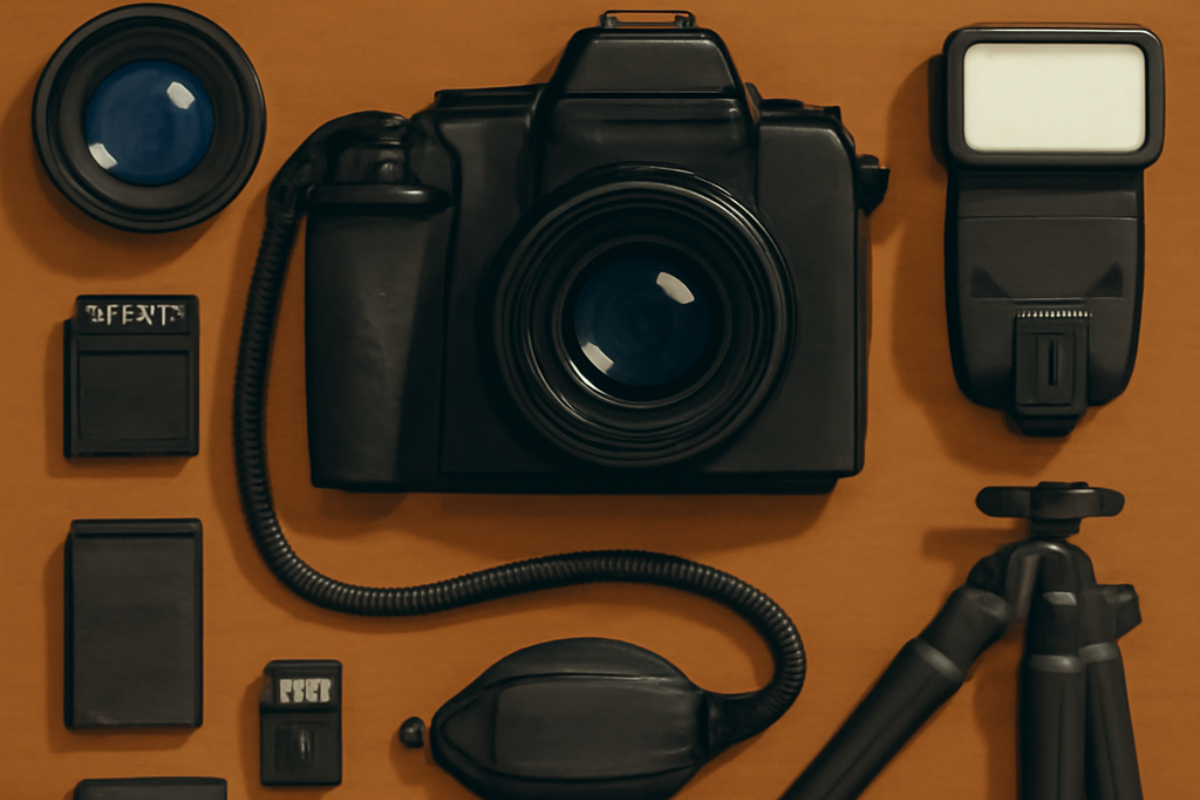Starting out as a photographer can feel overwhelming due to the number of gear options available in the market. While some photographers might be tempted to buy every accessory they can find, it’s crucial to focus on the essential equipment that will help you grow as a photographer without breaking the bank. In this article, we will cover the seven essential pieces of equipment every beginner photographer should have.
1. A Reliable Camera
The most important piece of equipment is, of course, the camera. There are two main types of cameras to choose from when starting out:
- DSLR Cameras: Digital Single-Lens Reflex (DSLR) cameras are popular among beginner photographers because they offer full manual control over your photos and provide high-quality images. The most common choice for beginners is the Canon EOS Rebel or Nikon D3500, both of which offer excellent performance at an affordable price.
- Mirrorless Cameras: Mirrorless cameras have been gaining popularity in recent years. They are lightweight, compact, and offer similar image quality to DSLRs. For beginners, cameras like the Sony Alpha a6000 or Fujifilm X-T200 are excellent choices.
While both camera types are suitable for beginners, choosing one depends on your personal preferences, such as weight, size, and budget.
2. A Versatile Lens
Your camera body is only part of the equation—your lens will determine much of your image quality. As a beginner, investing in a kit lens (often an 18-55mm lens) is a great starting point. Kit lenses are versatile and allow you to shoot various types of photography, from landscapes to portraits.
As you progress, you may want to consider other lenses to enhance your creative options. Some popular lenses include:
- Prime Lenses (50mm f/1.8): Prime lenses are a great way to improve the quality of your portraits. They are also faster, meaning they perform better in low-light conditions.
- Wide-Angle Lenses (16-35mm): Perfect for capturing expansive landscapes or large group shots, wide-angle lenses are ideal for those interested in landscape photography.
3. A Tripod
A tripod is an essential piece of equipment that provides stability and helps eliminate camera shake, especially in low-light situations or when shooting long exposures. Whether you’re capturing landscapes or experimenting with night photography, a sturdy tripod ensures sharp, clear images.
When choosing a tripod, look for one that is lightweight yet sturdy enough to support your camera. Brands like Manfrotto and Joby offer reliable tripods at various price points.
4. A Camera Bag
A camera bag is necessary to keep your gear organized and protected while you’re on the go. Whether you’re walking around the city or traveling to a photo shoot, your camera bag will keep everything safe and easily accessible.
Look for a bag that offers plenty of compartments for your camera body, lenses, memory cards, and accessories. Lowepro and Peak Design are popular brands known for their durable and functional camera bags.
5. Extra Memory Cards
Running out of memory space mid-shoot is every photographer’s nightmare. Having extra SD cards ensures that you don’t miss any crucial moments while shooting. It’s a good idea to invest in high-capacity, fast-speed SD cards to make sure you can shoot continuous bursts or high-definition video without interruption.
For most beginner photographers, 64GB or 128GB SD cards should provide ample storage for your needs. Make sure to back up your files regularly to avoid any data loss.
6. A Lens Cleaning Kit
Keeping your lens clean is essential for sharp, clear photos. Smudges, dust, and fingerprints can ruin an otherwise perfect shot. A lens cleaning kit typically includes a microfiber cloth, lens cleaning solution, and a blower brush to help keep your lenses in tip-top condition.
It’s essential to clean your lens gently to avoid scratches and maintain the longevity of your equipment. Brands like Giottos and Zeiss offer affordable and effective lens cleaning kits.
7. A Protective Filter
Although not strictly necessary, a UV filter or a polarizer filter can protect your lens from scratches, dust, and moisture, while also improving image quality. A polarizer filter helps to reduce reflections and enhance colors, making it a great choice for landscape photographers.
Filters are an inexpensive way to extend the life of your lens while also improving the quality of your photos. Make sure to choose filters that fit the size of your lens.
Conclusion
As a beginner photographer, it’s easy to feel overwhelmed by all the gear available. However, by focusing on the essential equipment, you can ensure that you’re setting yourself up for success without overspending. A good camera, versatile lenses, a sturdy tripod, and other basics will provide you with everything you need to start your photography journey on the right foot. Remember, your skill as a photographer is what truly matters, and the equipment is just a tool to help you express your creativity.
